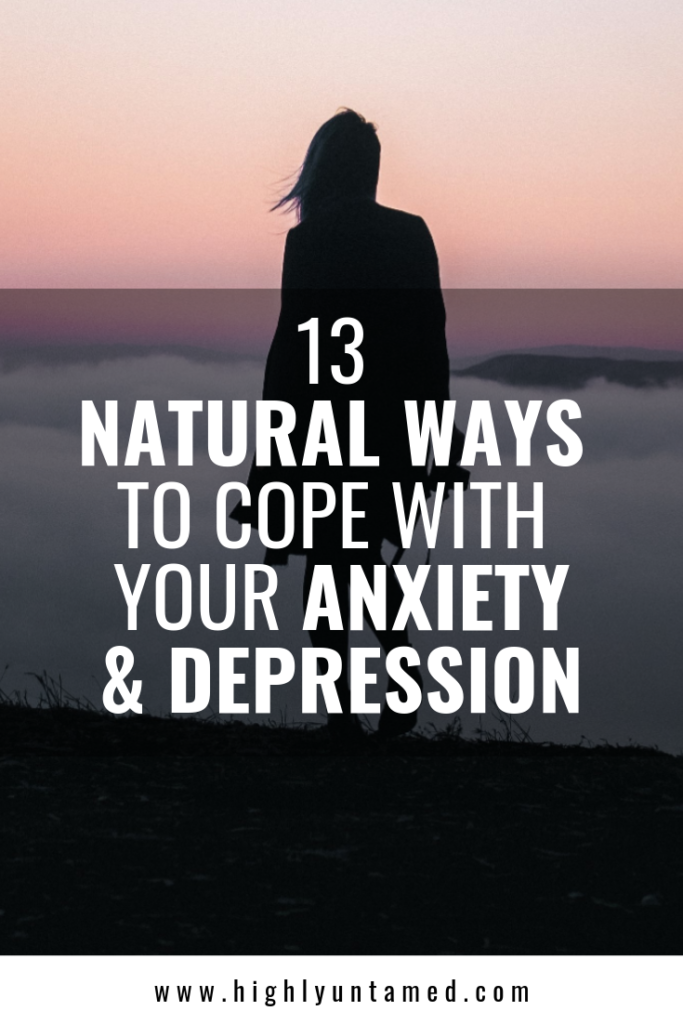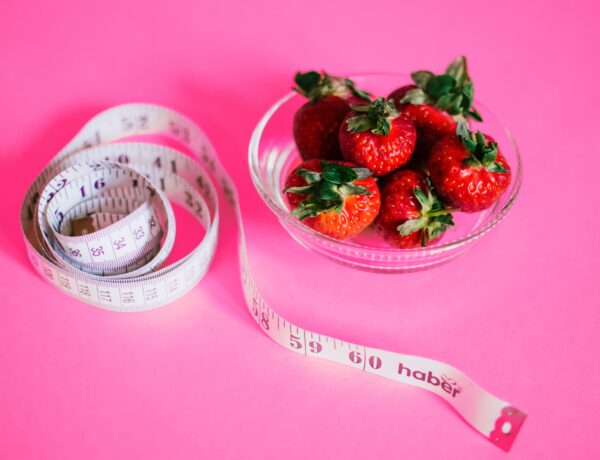According to Mental Health America, over 44 million American adults have a mental health condition. I am one of them. I live with anxiety and depression, and it’s not fun, nor is it pretty. It’s not even the least bit glamorous. If you’ve experienced either throughout your life, then you’re well aware that the struggle is real AF.
Anxiety is one of the most common types of mental illness, and it impacts millions of people around the world, including our youth. Some blame it on immediate access to social media and the constant use of technology. Others chalk it off to how our brains are wired. Many attribute it to brain chemistry, including hormone imbalances and deficiencies.
Anxiety and depression come in many forms. Sometimes it’s the crippling fear of walking into a crowded bar or restaurant to find your friend who’s in there waiting for you. Other times it’s dreading making a phone call or going to a job interview. A lot of the time, it’s not being able to wake up so quickly in the morning. All of the time, it’s recharging your own batteries and fighting back the urge to separate yourself from everyone and everything so your batteries don’t drain so fast.
However severe your anxiety or depression may be, it’s important to understand where it comes from and how to cope with it in a safer, healthier way so you can live your life as peacefully and normally as possible – as hard as that may seem to be sometimes.
From a mix of personal experience and research, I’ve figured out how to keep my mental health at bay so it doesn’t interfere with my daily life on a crippling basis anymore.
This is NOT intended to serve as professional or medical advice. I just want to share some of these tips and strategies with you, in case they might help you too.

Here are some rules to follow, healthy things to do, and natural ways to cope with anxiety and depression:
Understand your triggers.
Learn exactly what gives you a panic attack or sets you into a depressive state of mind. Do you notice you usually feel anxious at certain times, or when certain people come around, or when certain things happen? If not, then take note at the next onset of an attack or episode and try to limit your exposure to those triggers as often as possible.
Keep positive.
In your darkest times and saddest moments, it’s important to stay positive. The mind is an extremely powerful thing — know that there is a light at the end of the tunnel and positivity is the guide that will pull you through. Nothing is permanent. Not even the worst anxiety attack. You WILL feel happier again. Promise.
Accept what is and be open to change.
Let go of control. Easier said than done, of course, but try to be more accepting of change and less obsessed with trying to control everything and everyone around you. One of my favorite quotes that I’ve ever read went something like “If you can’t change the outcome of the situation, don’t worry about it. If you can change the outcome of the situation, don’t worry about it.” This is basically another way of saying your situation is going to work out one way or another, regardless of whether you stress about the controllable or uncontrollable factors involved.

Limit your intake of caffeine and alcohol.
Cutting out coffee was one of the best (and hardest) lifestyle changes to make. Although I miss the sweet, sweet taste of dark roast coffee as black as my soul, caffeine is not the right type of fuel to get us anxious people through the day. It’s too much and can send our bodies and minds into overdrive. Instead, save your cash on tea, coffee, beer, and margaritas, and invest in some peace of mind.
(There are a bunch of other awesome benefits of cutting out caffeine and alcohol, too!).
Stay hydrated.
Drink more water! Hydration improves the way your entire body works and your brain functions. Drinking water directly impacts your physical, mental, and emotional health. Try to intake as much water as you can safely drink every day. You’ll probably find that you feel a lot better when you’re properly hydrated.
Take care of your body.
Exercise often – at least 30 minutes per day. Sleep well – at least 7-8 hours each night. Eat well – lots of greens and nutrients. It feels really good to take care of yourself. When your body is in better shape, your mind will typically follow suit.
Meditate.
Set time aside to (try to) relax. Focus on your breathing. Use a guided meditation app if you need to. It’s amazing how calm you can train your mind to become when you simply divert all of your attention to the inhalation and exhalation of your breath.
Unplug.
Sometimes just turning off, putting aside, or walking away from your phone and laptop is enough to make you feel better. We get so wrapped up in scrolling through social media and answering group texts that we forget to take a step back. Put your phone on silent. Then put it down. Enjoy life in the present moment. Your texts, emails, and other notifications will still be there when you finally decide to pick your phone up. And you’ll probably feel up to answering everybody back when you do.

Seek therapy.
Don’t bottle things up, and don’t wait until you explode either. Talk it out with a professional. Consult a therapist if/when you get too anxious or depressed. It’s 100% okay (and encouraged!) to admit you need help. Therapy has absolutely changed my life for the better, and I recommend it to anyone and everyone who will listen to me advocate for it.
Do the things that you love and be with the people who make you happy.
Never underestimate the restoring power of pursuing your passions or having a strong support system. Sometimes all you need is to either lose yourself in one of your hobbies or be in good company, whether that’s a family member, best friend, or significant other, to remind you that you’re okay.
Don’t be afraid to take a step back and recharge.
“Me-time” is so necessary and so healing. When things get a bit too much and you need to chill out, take a much-needed step back. Hibernate for a night or a few days. Take the time you need to recharge your mind and heart to be ready to take on the world again.
Spend time in nature.
Nothing grounds me quicker and better than spending time outdoors. Stare up at the night sky and count the stars. Sit by the water and watch the waves endlessly roll into shore. Stand in a forest and listen to the trees and watch their leaves rustle in the wind. It’s hard to feel anything other than blissful when you’re surrounded by and enclosed in such natural beauty. Science backs me up on that!
Find a creative outlet to express yourself.
What do you do to express yourself? How do you get creative? Do you make art? Do you write? Paint? Take photos? Make videos? Make music? Read? Chat with a friend? Whatever you do that enables you to express yourself in a healthy way, find a way to do it frequently. Accept yourself for who you are, the talents you have, and the wonderful assets you bring into the world by expressing yourself through your personal, unique creative outlet.
The world is full of magic. As dark and sad and intimidating as it may be sometimes when living with anxiety or depression, it is a beautiful place and we must stay positive and keep our eyes, minds, and hearts open in order to see that.
From one person with mental illness to another, we got this! There are many ways to positively cope with our condition. You just have to figure out the best ways that effectively work for you.
The Anxiety and Depression Association of America (ADAA) shares a ton of super helpful resources for people who struggle with overcoming and coping with their mental illnesses. Check out their website if you’re in need of some professional tips or tricks to improve your mental and emotional health.
Save this post on Pinterest!

Featured Photo Credit: Shopify Burst



